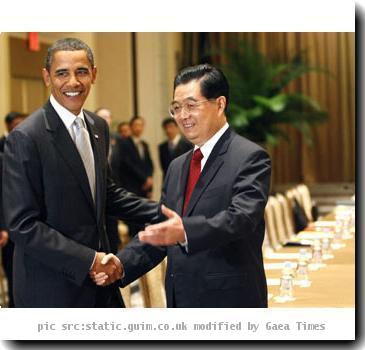China says trial for Briton who faces execution, despite mental health concerns, was fair
By Cara Anna, APTuesday, December 22, 2009
China says trial for condemned Briton was fair
BEIJING — China on Tuesday dismissed an appeal from Prime Minister Gordon Brown to spare a British man set to be executed next week for drug smuggling, saying he had a fair trial despite concerns he suffers mental health problems and was duped into the crime.
Akmal Shaikh, 53, was sentenced in a half-hour trial in October 2008 for taking a suitcase containing almost 9 pounds (4 kilograms) of heroin into the far western Chinese city of Urumqi. China’s highest court has rejected his appeal and his execution is set for Dec. 29.
He would be the first European to be executed in China in a half-century.
Family members have not been allowed to visit Shaikh since his arrest in 2007 and say he has a lifelong history of unbalanced behavior and may suffer bipolar disorder, formerly known as manic depression.
Britain has expressed alarm over his imminent execution, accusing Chinese officials of not taking Shaikh’s mental health concerns into account as required by law, despite repeated requests from his lawyers, the prime minister and numerous British and European officials.
Downing Street said Brown had written Monday to “express dismay” over the court’s upholding of the death sentence.
“We will be using the next few days to renew and intensify our appeal to the Chinese authorities for clemency,” the Foreign Office said in a statement.
On Tuesday, Chinese Foreign Ministry spokeswoman Jiang Yu refused to address the mental health issue and only said Shaikh’s case “was handled according to the law.”
“Drug smuggling is a grave crime. The rights of the defendant have been fully guaranteed,” she told a regular news conference.
British human rights group Reprieve says Shaikh, a small business owner from London, was lured to China by two men who promised to help him launch a career in pop music. He was arrested traveling on a flight from Tajikistan to Urumqi. A preliminary psychological report commissioned by the group says Shaikh’s actions “were most likely influenced by some form of delusional psychosis.”
Reprieve said Shaikh’s legal options have been exhausted now that the Supreme People’s Court of China has rejected his appeal, and said his last chance appeared to be clemency. It appealed to Chinese President Hu Jintao to grant Shaikh a pardon.
Shaikh’s family has not been able to speak with him since his arrest in 2007, but the British Embassy has been able to visit him from time to time, said Sally Rowen, a legal director at Reprieve.
“It is impossible to imagine what Akmal’s family are going through this holiday season,” Reprieve Director Clive Stafford Smith said in a statement. “This is no time for pride — they beg the Chinese authorities to show compassion and take Akmal’s mental health problems into account.”
China executes more people than any other country — by gunshot to the head or lethal injection — but the Supreme People’s Court in July called for the death penalty to be used less often and for only the most serious criminal cases.
The court overturned 10 percent of death sentences handed down in 2008, the China Daily newspaper has reported. But China still put at least 1,718 people to death in 2008, according to Amnesty International.
The Urumqi Intermediate People’s Court spokesman did not answer calls Tuesday. The spokeswoman for the Xinjiang regional government, Wu Nong, said she did not know about Shaikh’s case.
Associated Press Writer Raphael G. Satter in London contributed to this report.

